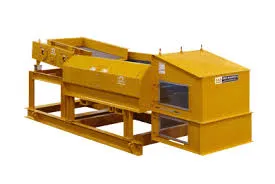

Nov . 21, 2024 22:55 Back to list
The Importance of Steel Scrap Processing Plants
Steel scrap processing plants play a vital role in the modern recycling industry, contributing significantly to environmental sustainability and economic efficiency. As global demand for steel continues to rise, the need for sustainable practices in steel production becomes increasingly critical. Steel scrap processing plants are at the forefront of these efforts, transforming discarded metal into valuable raw materials that can be reused in various manufacturing processes.
What is Steel Scrap?
Steel scrap refers to leftover pieces of steel, which can be sourced from a variety of places, including construction sites, manufacturing facilities, and consumer products that have reached the end of their life cycle. These materials can be recycled to create new steel products, reducing the reliance on virgin materials, which are often limited and require extensive energy and resources to extract. The recycling of steel scrap not only conserves natural resources but also minimizes environmental impacts associated with mining and processing raw metals.
The Processing Plant Operations
Steel scrap processing plants are equipped with advanced machinery and technology to efficiently handle and recycle scrap metal. The first step in the process involves the collection and sorting of scrap, which may include both ferrous and non-ferrous materials. Modern facilities utilize automated systems, such as magnetic separators and shredders, to sort scrap based on its material composition and size. This ensures that the recycling process is both efficient and effective.
Once sorted, the scrap is then cleaned to remove any impurities, such as plastics, wood, or other non-metal materials. The cleaned scrap is then compacted into bales or shredded into smaller pieces, making it easier to transport. Following this stage, the processed scrap is melted in electric arc furnaces (EAFs) or induction furnaces, where it is transformed into molten steel. This molten steel can then be poured into molds and cooled to create new steel products or further processed to meet specific industry standards.
Environmental Benefits

The environmental benefits of steel scrap processing are substantial. Recycling steel scrap saves an estimated 1,400 kilograms of iron ore, 740 kilograms of coal, and 120 kilograms of limestone for every ton of steel produced from scrap. Moreover, recycling steel reduces greenhouse gas emissions significantly—up to 58% less than producing steel from raw materials. This reduction is crucial in the fight against climate change, as steel production is one of the largest industrial sources of carbon emissions.
Furthermore, steel recycling helps to conserve landfill space, reducing the burden on waste management systems. Approximately 70% of all steel is recycled, making it one of the most recycled materials globally. Steel scrap processing plants not only provide a sustainable source of raw materials but also contribute to the circular economy by ensuring that materials are reused rather than discarded.
Economic Impact
In addition to environmental benefits, steel scrap processing plants have a significant positive impact on the economy. These facilities create thousands of jobs, offering employment opportunities in various sectors, including logistics, manufacturing, and engineering. They also contribute to local economies by supporting surrounding businesses and generating tax revenues.
As the demand for steel continues to grow globally, innovation within the scrap processing industry remains paramount. Cutting-edge technologies, such as artificial intelligence and automated recycling systems, are being integrated to enhance efficiency and recover more materials from scrap. This constant evolution not only improves the economic viability of recycling but also ensures that the industry can adapt to changing materials and consumer demands.
Conclusion
In conclusion, steel scrap processing plants are essential to promoting sustainability in the steel industry. By efficiently recycling steel scrap, these facilities help conserve natural resources, reduce environmental impact, and bolster the economy. As we move towards a more sustainable future, the role of steel scrap processing will only amplify, making it a cornerstone of responsible steel production and consumption.
Latest news
Troubleshooting Common Eddy Separator Problems
NewsJul.04,2025
The Role of Metal Recycling Plants in Circular Economy
NewsJul.04,2025
The Impact of Recycling Line Pickers on Waste Management Costs
NewsJul.04,2025
Safety Features Every Metal Shredder Should Have
NewsJul.04,2025
How Industrial Shredders Improve Waste Management Systems
NewsJul.04,2025
How Cable Granulators Contribute to Sustainable Recycling
NewsJul.04,2025